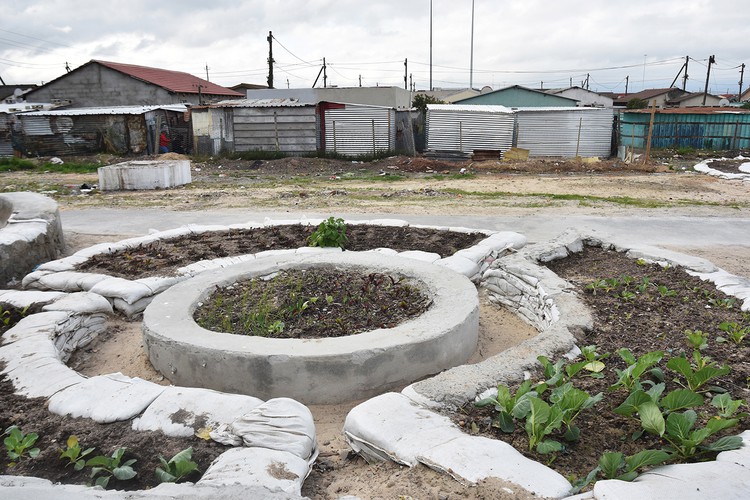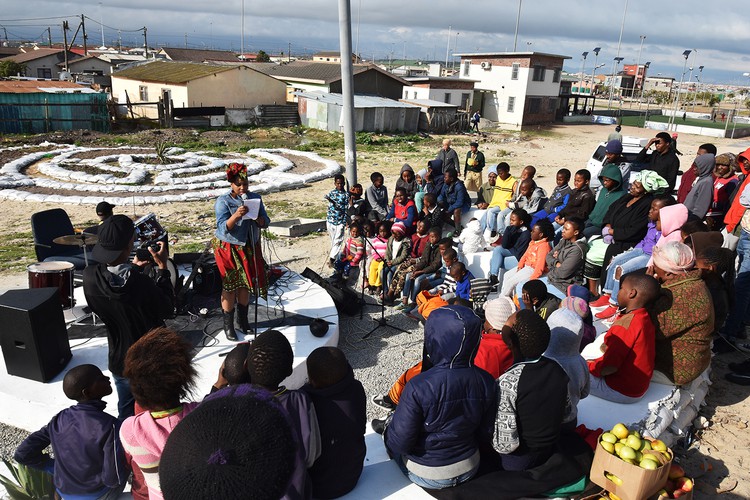Meet Khayelitsha’s guerilla gardeners
Ujamaa encourages people to be less dependent on supermarkets for food
In April 2016, a group of about 12 people cleared a patch of public land previously used as an illegal dumping ground next to the Khayelitsha Football for Hope Centre. They are known as Ujamaa: a collective of guerrilla gardeners. They are encouraging people from surrounding communities to be less dependent on supermarkets.
Using a self-built pool to capture rainwater for irrigation, they planted vegetables such as spinach, kale, beetroot, and cabbage, in Khayelitsha’s sandy soil. There are no fences or security guards at the site and the produce is free for anyone to collect and harvest themselves.
According to Ujamaa members, Nonzame Nkata, Songezo Maha and Nkosivumile Gola, the idea for the project came from their need to do something about the high poverty and unemployment levels in their communities. The initiative is also mostly funded by the members themselves. They also run gardening competitions for children in the area.
The Ujamaa members say the garden is about promoting self-reliance and changing the profit mentality around food.
Gola says: “It’s a microcosm of what society should be. If we fail to share the spinach in the garden, then there’s no hope for us to be able to share in the future.” He says putting a price tag on food is deciding who can eat and who can’t, and is therefore a form of oppression.
The name “Ujamaa” is a reference to socialism and former Tanzanian president Julius Kambarage Nyerere’s cooperatives system, which opposed individual wealth and sought to collectivise all production through communal agriculture.
Gola believes that socialist ideas should be adopted in South Africa because the current system only works for a few. “When my neighbour doesn’t have food, it should be as hurtful as when I don’t have food,” he says.
Gola says it’s important to start with what’s available to you [like an underutilised piece of land] and sees the gardening project as a way of protesting increasing food prices. “Imagine if all the public spaces were filled with gardens, where communities stood up for themselves and planted communal gardens all over Khayelitsha.”
Maha says that the project is educational. They hope it will inspire many more community members to start their own gardens and eventually increase self-sustainability beyond food.
To get involved or find out about events happening at the garden, you can follow Ujamaa on Facebook.

Support independent journalism
Donate using Payfast

Don't miss out on the latest news
We respect your privacy, and promise we won't spam you.
© 2017 GroundUp. 
This article is licensed under a Creative Commons Attribution-NoDerivatives 4.0 International License.
You may republish this article, so long as you credit the authors and GroundUp, and do not change the text. Please include a link back to the original article.

